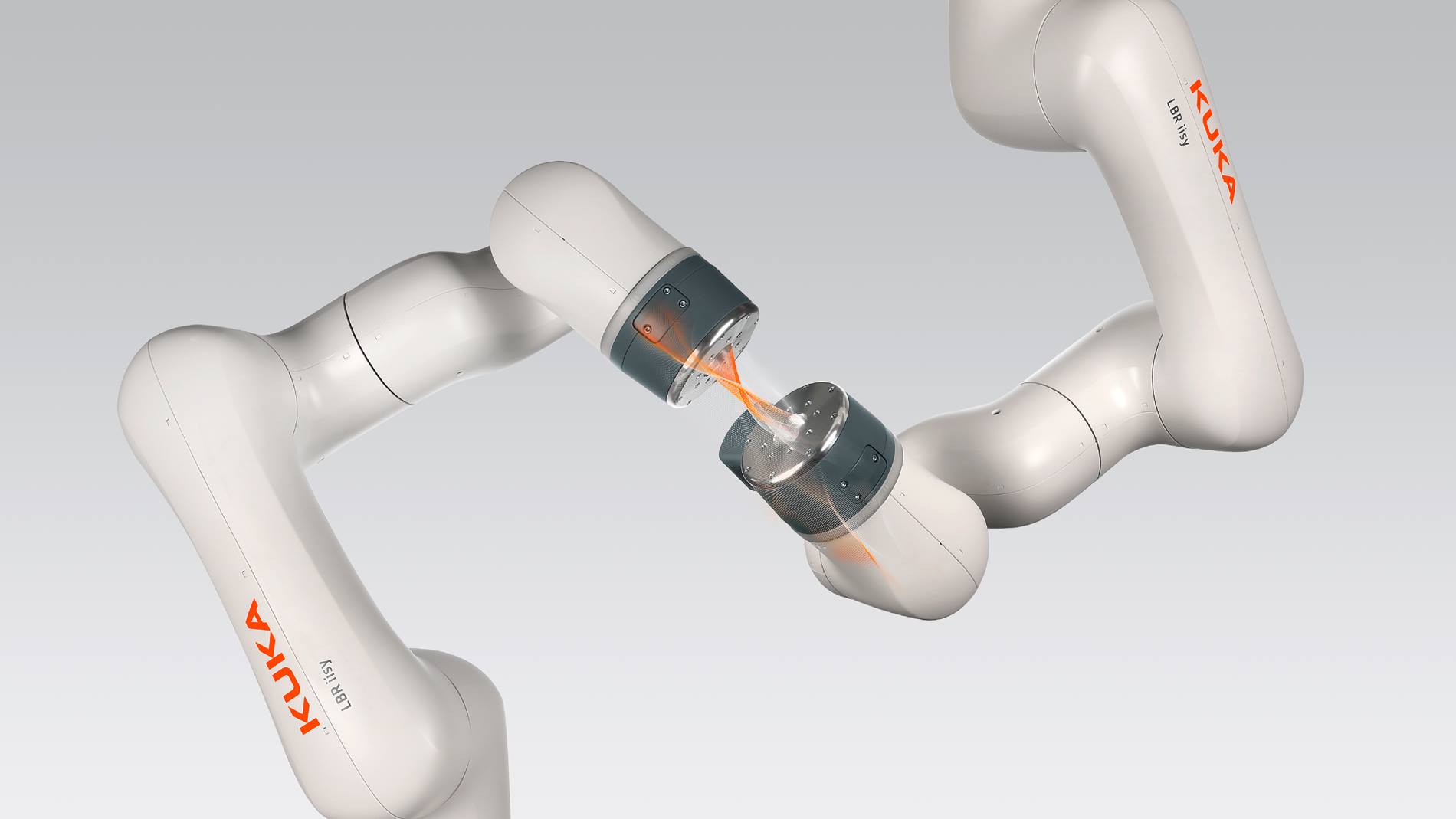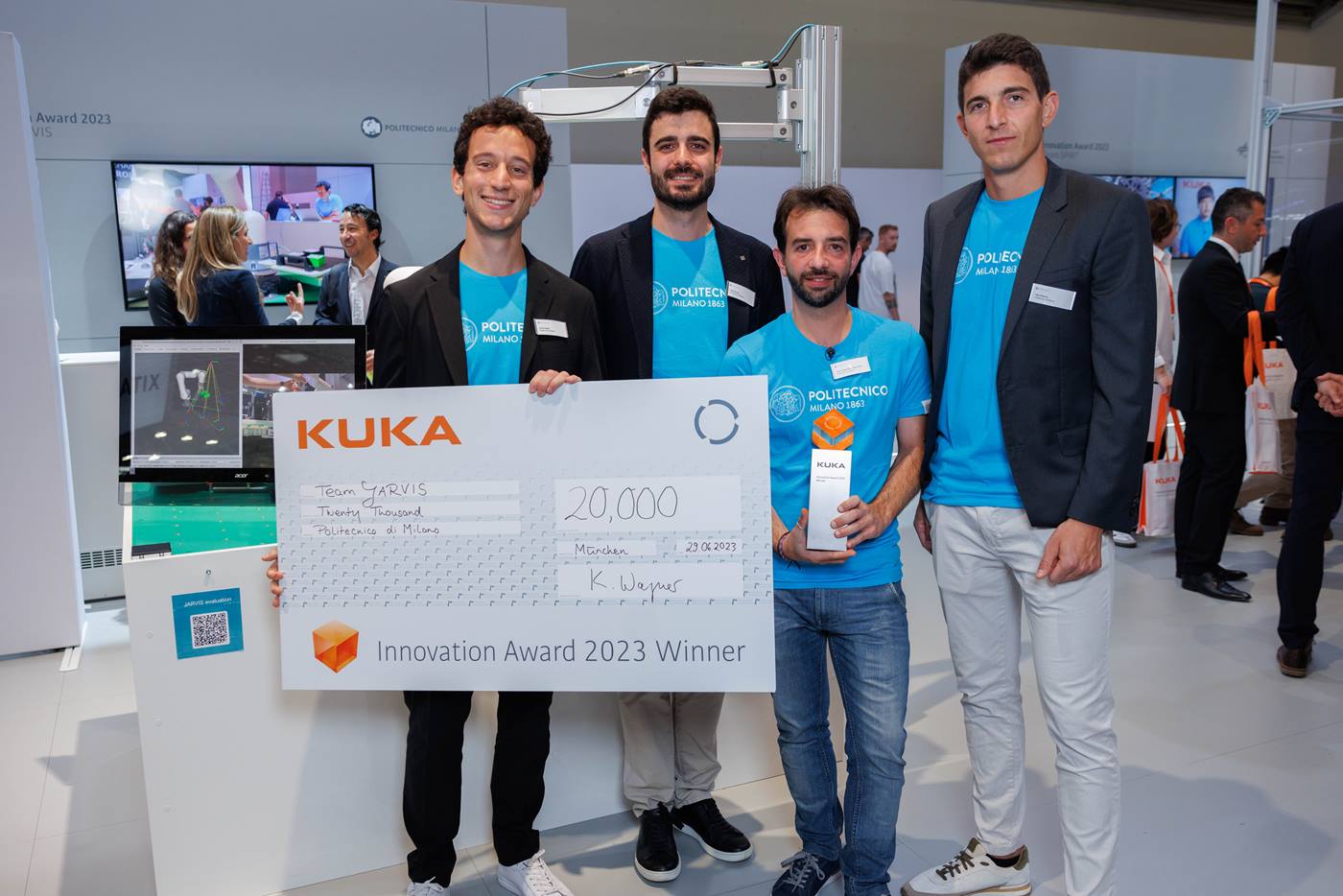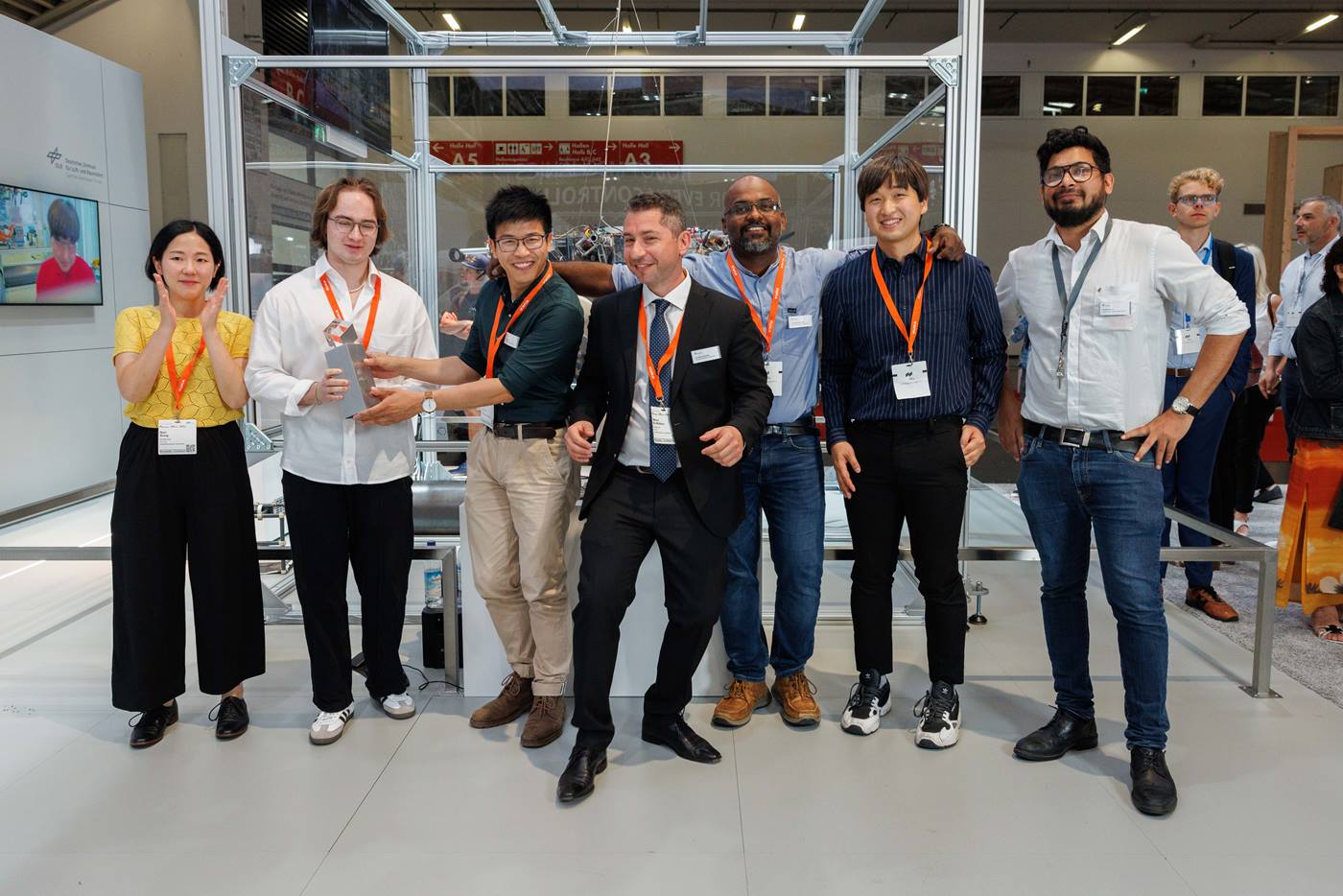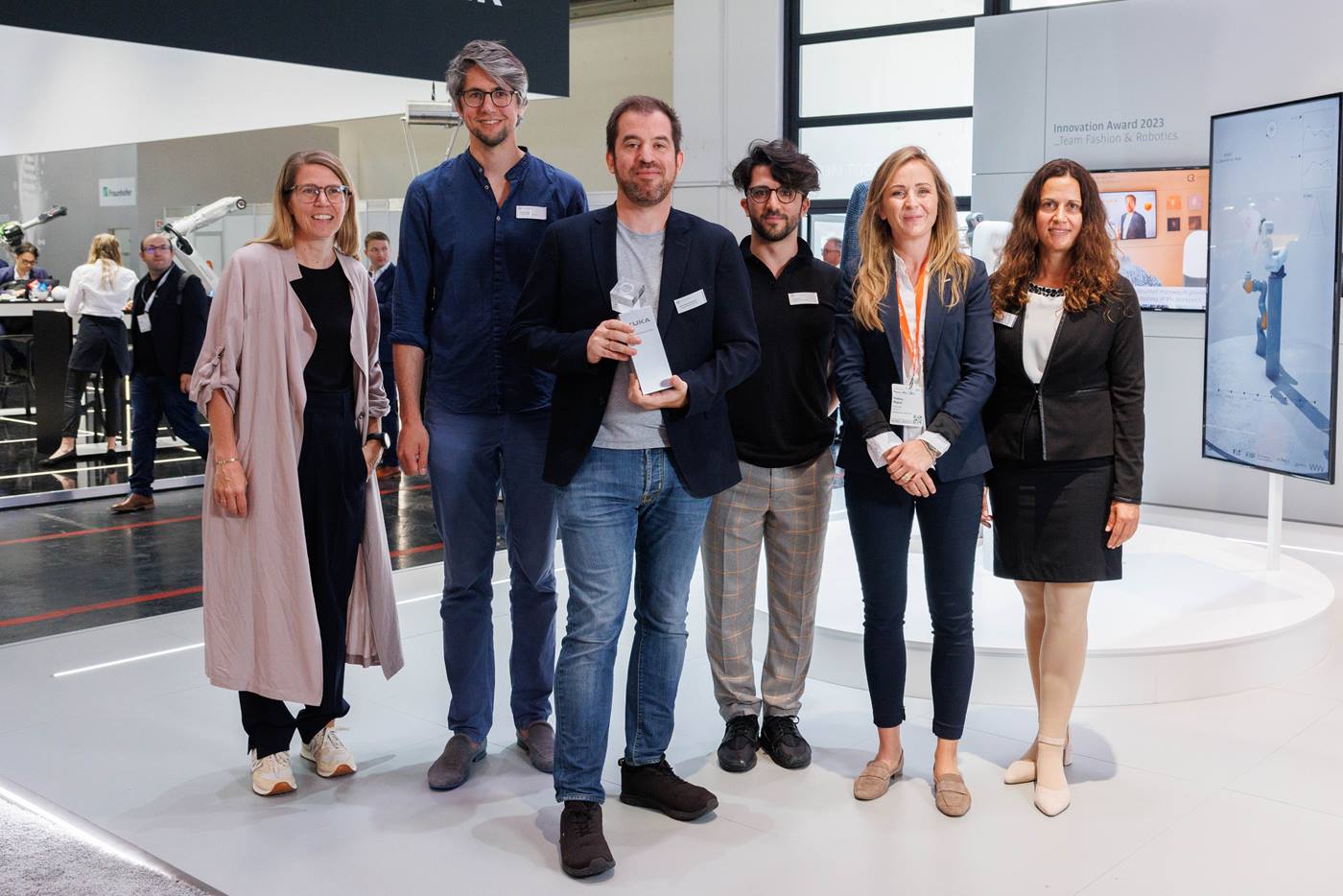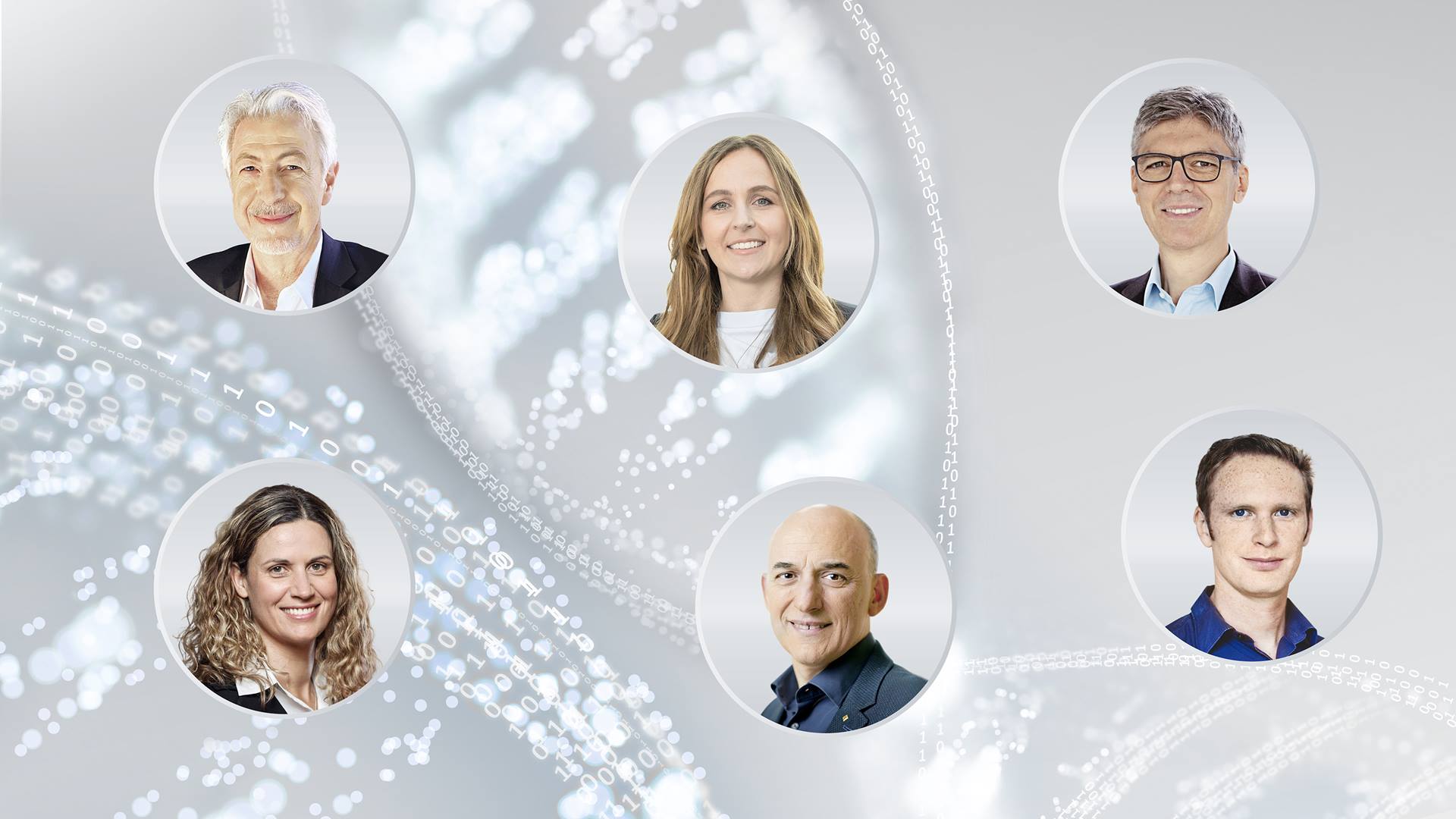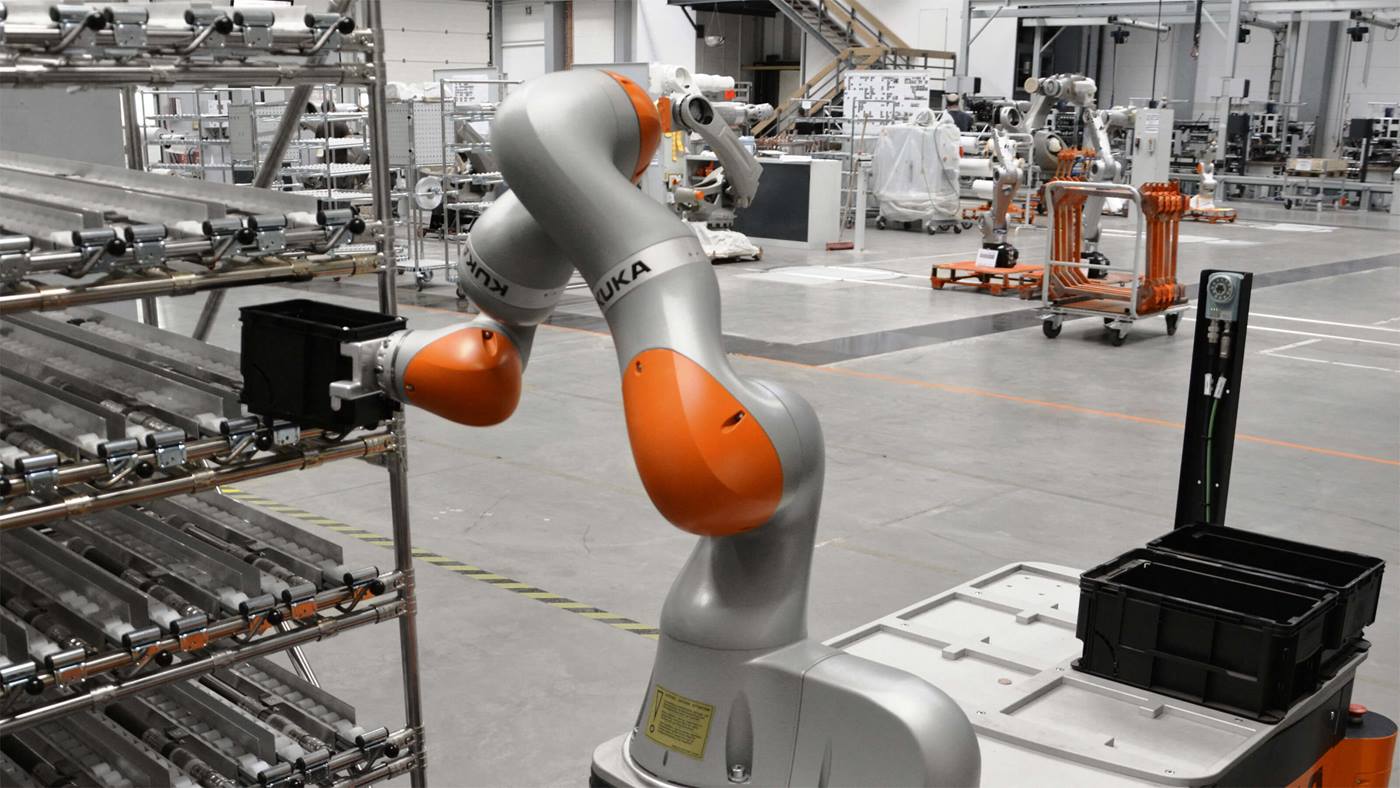The challenge
For the first time the KUKA Innovation Award was based on our newly introduced iiQKA robot operating system and the iiQKA ecosystem. This enabled the finalists to implement their own hardware and software extensions on a KUKA robot much easier than before, making a modern, powerful and scalable basis for technology innovation within robotics available.
In the same spirit we defined the motto for this year’s award: The Open Platform challenge. Applicants were asked to use the availability of open interfaces in iiQKA and to extend the robot system by their own hardware and software components in order to deal with typical tasks in production much faster and easier.

